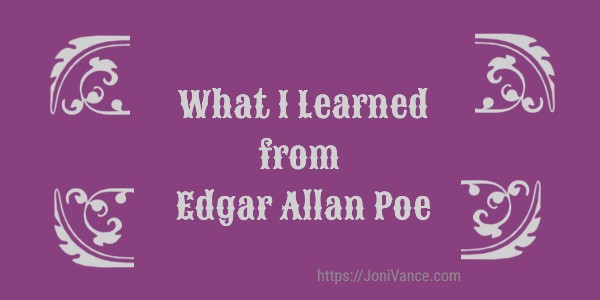
Learning how to solve a murder
Most people agree that Edgar Allan Poe’s “The Murders In The Rue Morgue” (1841) was the first modern detective murder mystery story published.
The story is about a genius detective who solves a murder mystery by analyzing the crime scene and applying logic. It also introduces the “locked room” scenario where it seems impossible that the murderer could have entered or departed without being seen.
These significant elements of detective fiction have become the foundation for a vast amount of literature including Conan Doyle’s Sherlock Holmes and Agatha Christie’s Hercule Poirot.
Learning detective fiction elements
In my comments below about “The Murders In The Rue Morgue”, I’ve tried to take into account that the story was the first of its kind and was written when the vernacular and the writing style were very different from today.
I’m very grateful Poe wrote the story. The fundamental aspects of a smart detective and a locked room sparked the imaginations of other writers who added their creative spin and compelling elements that are considered essential today.
Fair Play With Clues
Poe’s protagonist, Dupin, determined the identity of the culprit through clues and intellect. I wasn’t able to figure out who the culprit was.
When I went back through the story, I didn’t see clues that provided me with enough information to solve it. If you did, great!
Having clues sprinkled throughout so the reader can figure it out is what writers call “fair play”. Readers spend their hard-earned money on books, and I think they deserve to have a fair playing field. To me, the most enjoyable stories are where the clues are all there, and if I’m still not able to determine the solution, I feel like I had a fair chance to figure it out. And looking back at the clues to piece together the whole puzzle is a way to enjoy the book again.
Characters Stakes
In Poe’s story, the main POV (point-of-view) character is the narrator. And I didn’t feel that either he or Dupin would be negatively impacted, or even inconvenienced, if they didn’t solve the crime.
Today, one of the main goals is to make the reader care about the characters and what happens to them. That keeps the reader turning pages. The only reason I finished Poe’s story was to find out who did it, but I didn’t care if Dupin or someone else solved it.
Character Change
I didn’t perceive any character change, positive or negative, in Dupin or the narrator.
A common expectation in the today’s fiction, is that the POV characters will be changed (hopefully for the better) by what they’ve endured in the story. This element helps me connect with the characters.
And when I see someone who has overcome some hardship, or is courageous through a hardship, it helps me believe I can do the same with my life challenges.
The First Thing I Learned from Poe
But the first thing I learned from Poe, I learned in high school: his stories are too creepy and graphic for me.
Poe’s words still impact people today. And so do his contributions to detective fiction.
How has Poe’s writing impacted you?
What I Learned from Edgar Allan Poe – How has Poe's writing impacted you? Share on XJoni Vance is an award-winning author of fiction, essay, and poetry. She loves mystery, history, and how God reveals Himself every day.
May God reveal the mystery of His love in your life story.

Joni. If you haven’t read the Aloysius Pendergast series from Preston and Child, you most definitely should. Pendergast is a modern day Sherlock Homes. The mystery you speak of is prevalent with plenty of clues along the way. I’m obsessed lately and working my way through everything these two have written.
So good to hear from you, Randy! I haven’t heard of the Pendergast series. Thanks for recommending them, and I”m glad you are enjoying reading those. Thanks for reading and commenting. 🙂
Thanks, Joni. I’ve always enjoyed reading Poe. I don’t know that I’ve learned anything from him other than the power of the sense of dread.
Thanks, Tim. Yes, Poe definitely could set a mood to show the power of emotion! Read on, my friend. 🙂 Enjoy Poe for me.
Any book of fiction I read, I only enjoy if I have a feeling of connection with the characters as you stated.
This is an interesting take on Edgar, Allan Poe who I never enjoyed reading either.
Thanks for your thoughts on this mystery writer.
Thanks for reading and commenting, Judy. I appreciate you affirming the point about connecting with the characters, and thanks for your support. 🙂